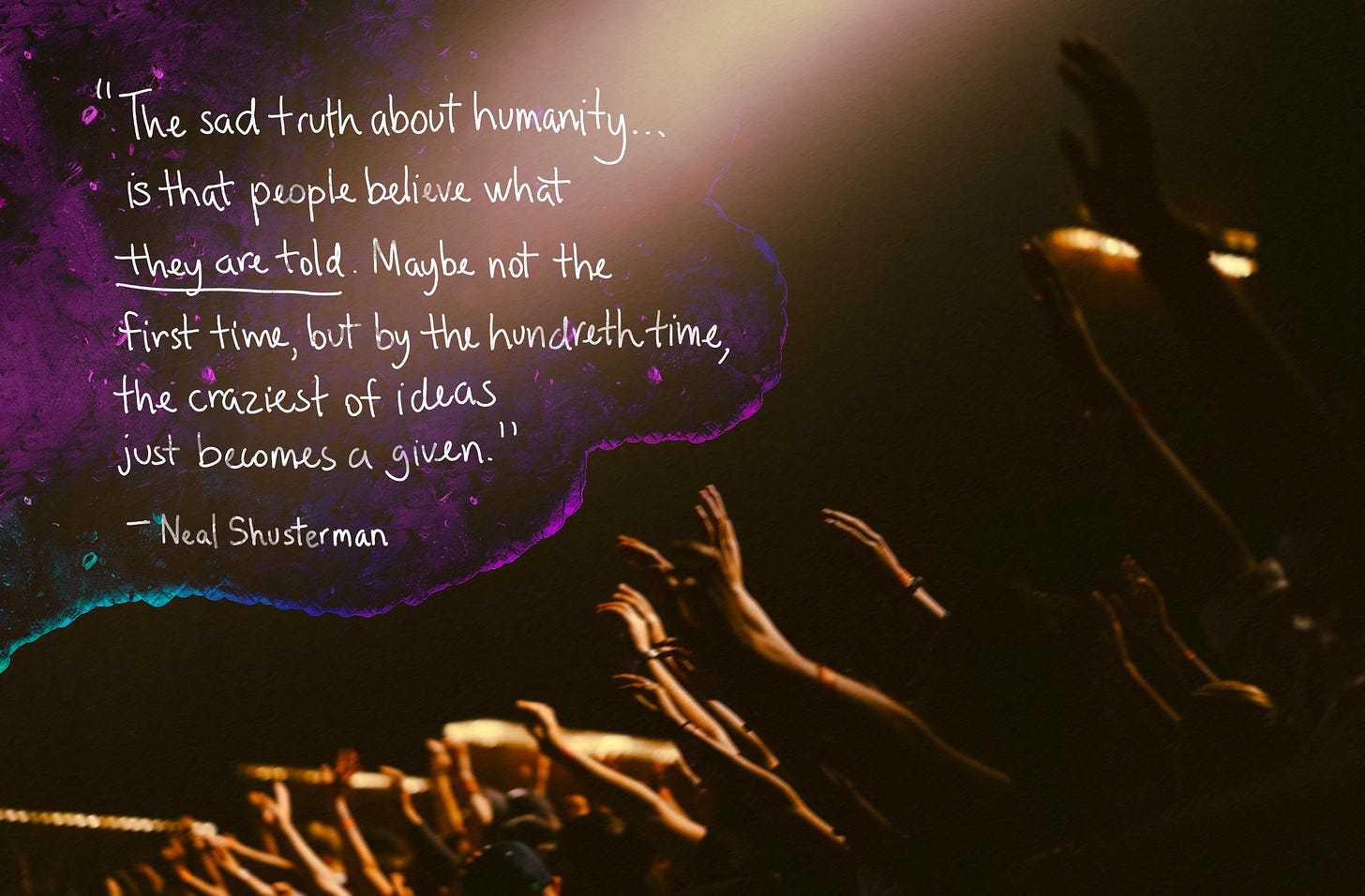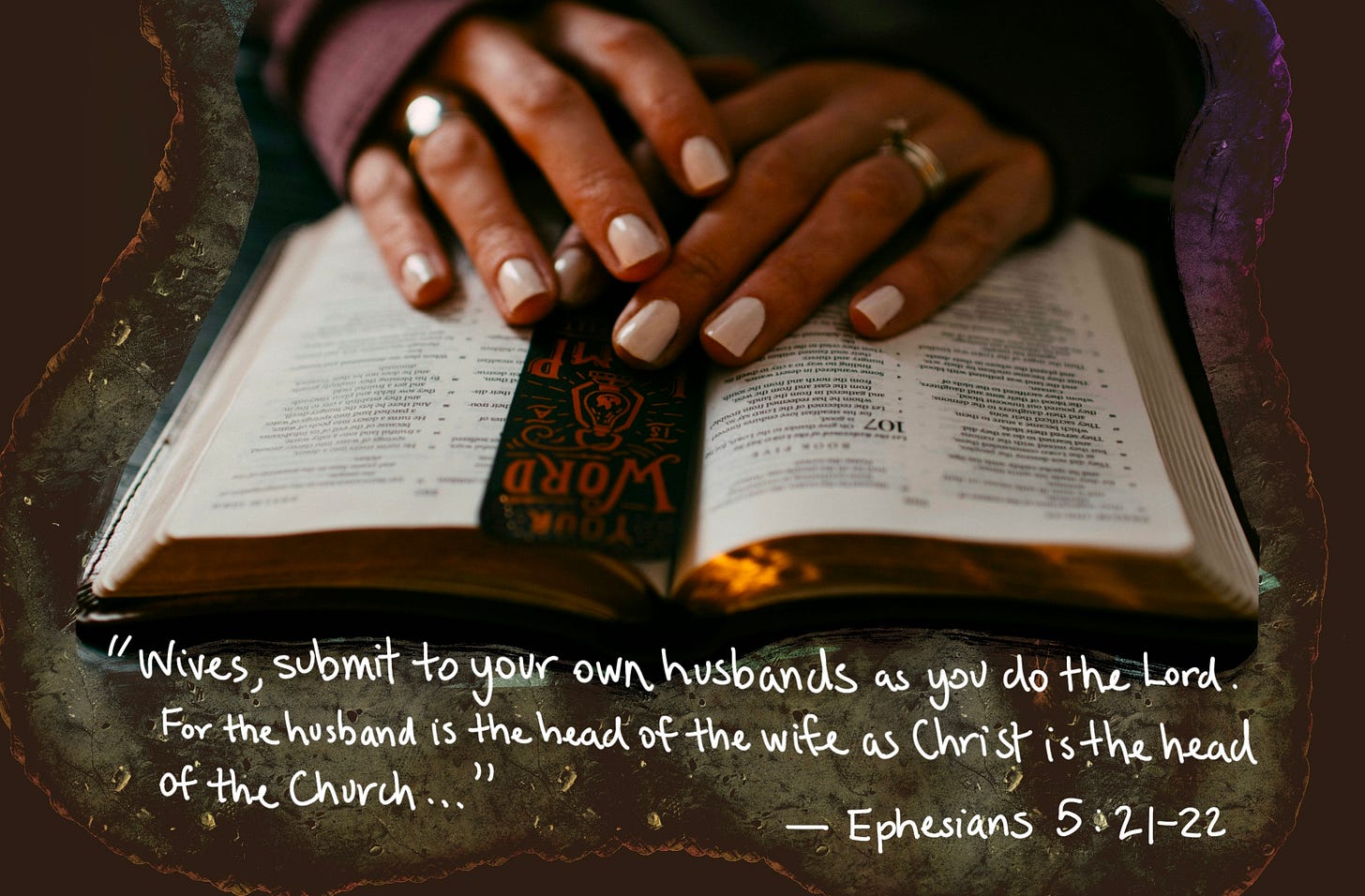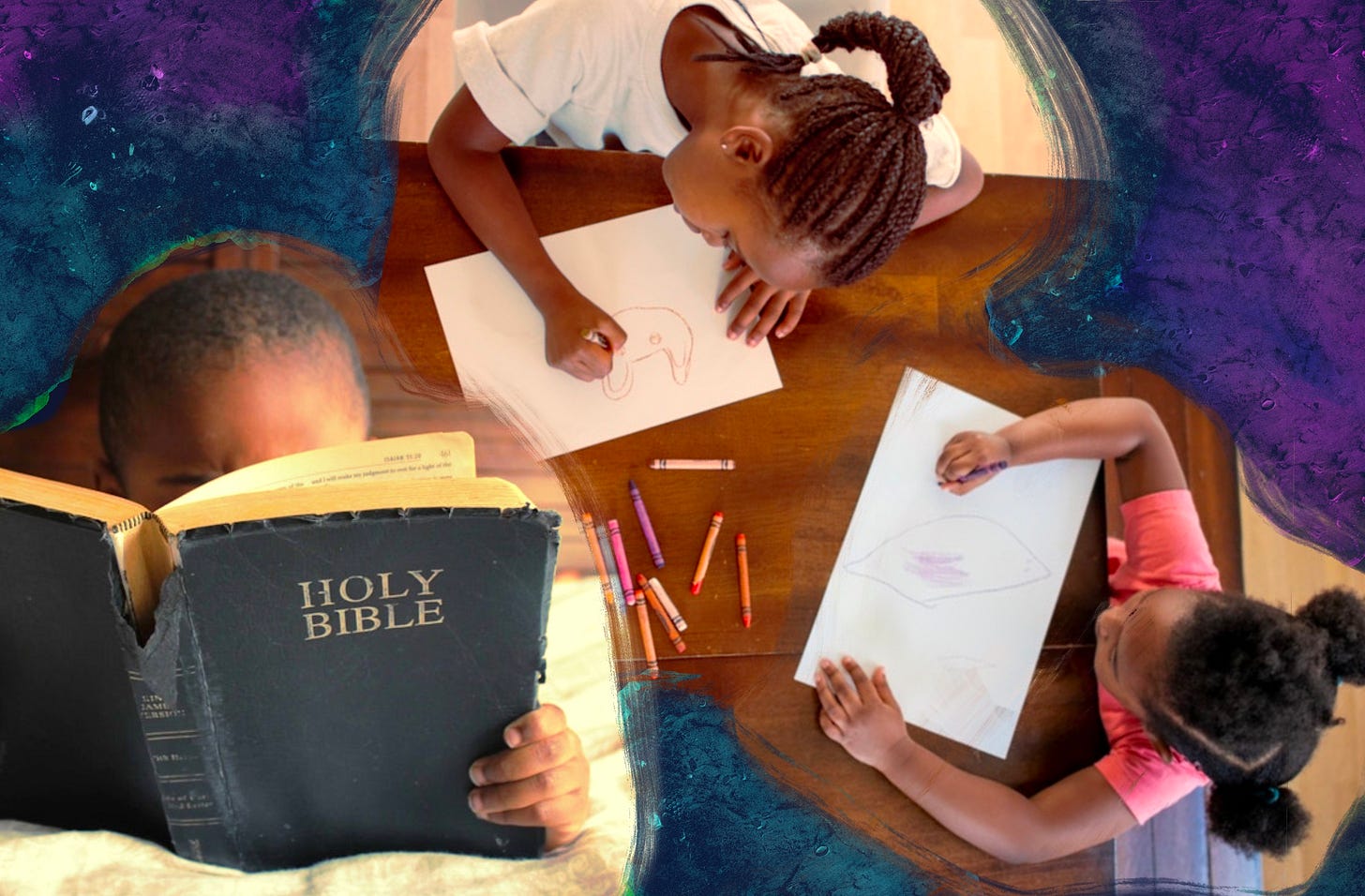Establishing My Own Beliefs Outside of Christianity
Growing up in a heavily religious community, I had to determine my own values and personal spiritual beliefs.
Just like many Black children, I was raised to be a Christian. I was not given the option nor was I asked if religion was something I wanted to participate in. I was simply indoctrinated into Christianity as a child… as a baby, really. I was baptized when I was less than a year old, before I could even speak or have a say in the matter. When I turned seven, I was baptized again, except this time they asked me first and it came with an incentive; a party with ice cream cake afterwards. Was I excited to take a little dip in the pool for some delicious desert? Yes. Could I say that I was solid in my faith as a 7 year old? Absolutely not. But I also had an idea that I would probably be judged heavily for it if I said no.
I remember the first time I learned what a rapture was. My cousins decided to watch Left Behind while I was visiting one weekend. The film confused me, and it was my first exposure to the concept. I was also somewhat disturbed about the fact that my cousins seemed to take it seriously. What I didn’t fully grasp was the widespread adaptation of this supposedly inevitable event by Christians around the world. Witnessing the religious psychosis associated with the rapture that was supposed to occur recently, on September 23, 2025, reminded me that people still genuinely believe in this phenomenon. I read a story about one woman who even gave up her own children to CPS, with the belief she would be raptured.
If I’m honest with myself, what I can say is that I was never actually a “believer”. I did not read the bible before going to sleep at night. When I was forced to attend church and sit there listening to sermons, I was normally drawing, journaling, or even napping. I rarely actually paid attention to sermons. In my family, many of us were deeply entrenched in religion growing up. However, thankfully, my parents weren’t as radical as other family members. They decided to leave my childhood church after witnessing foul behavior from the pastor, including him publicly cheating on his wife and refusing to compensate patrons who provided labor for the church. I've observed several aspects of the church, including the rampant misogyny, homophobia, and elitism. Eventually, I decided that I consider myself to be more spiritual than religious. I wanted to learn ways to center my morals and values without requiring external validation to do so.
I learned as a woman that religion is certainly “man made”.
One Sunday, I was getting ready to leave the house for church. My outfit consisted of black leggings with a jean skirt on top, and a long-sleeved shirt. Even though my skin was fully covered, an elder male family member complained that my outfit was “inappropriate”, even though my mother disagreed. It took me years to understand why I, just 8 years old at the time, was being sexualized for that simple outfit.
The very existence of the modern Christian church is highly male-centered, while also emphasizing the persecution and control of women. From using the story of Adam and Eve to blame men’s sins and shortcomings on women, to the idea that virginity is the purest trait a woman can possess. Personally, women have always embodied strength, love, beauty, and wisdom. I hold women in the highest regard, but unfortunately, our society does not share the same respect for them. Society views women as incubators, caretakers, and trophies.
Men often use religion to promote the subservience of women. I've heard one too many verses about "submission," and I'm afraid that for men, these ideas have carried over into dating. Men often express that they want a woman to submit to them, yet they don't want to provide anything. It also seems like many men pretend to be religious in one way or another, until you ask them if they are willing to abstain from sexual activity; then all of a sudden that becomes the one practice they don’t follow. I’ve found that men often use religion to manipulate the relationship, especially when they are trying to convince women to forgive them for their consistent mistakes. I'm not going to allow religion to dictate how I structure my relationships, and I certainly don't exist to simply put a man's needs first.
There is a correlation between decentering men and determining where religion fits into your life as a woman. Is your religion a list of instructions on how to cater to men's needs and demands, or does it teach you to love yourself and others while valuing community? The latter is what I thought religion was supposed to be.
Religious people are guilty of perpetuating homophobia and transphobia.
I can recall two specific experiences when I had to address the blatant homophobia and transphobia being spewed in front of me by close family members. The first occurrence was when I was around 10 years old. My cousin complained about the amount of “gay people” that attended her friend’s school. As someone who was not raised by my parents to hate anyone, I was confused as to why she was so disgusted. I specifically asked her what was wrong with people who are gay. She then proceeded to lecture me, loudly, about how her religion considers homosexuality to be a sin. She claimed this viewpoint made her a true believer, and questioned why I didn’t believe. Another cousin who was in the room with us, cosigned these ignorant ideas.
To provide a bit of background on this particular individual, her father is a pastor. So I don’t entirely blame her for her ignorance as a child. I just find it disappointing that she was older than me, and yet still didn’t have a grasp on the concept that people who are LGBTQ+ are just that… people. The idea that you could label someone’s sexuality as sinful is absurd to me. But as I got older, I realized where this ignorance really stemmed from.
Fast forward years later, and I’m eating dinner with several family members, including the pastor uncle who baptized me. A male family member who particularly enjoyed started controversial conversations at the dinner table, with the intention of gaining attention, decided to start a discussion about transgender athletes and how he believed they shouldn’t be able to compete. Of course the pastor cosigned these sentiments, but he took it a step further- implying that transgender people are pedophiles and sexual deviants. He claimed that as a child, his parents deciding to expose him to certain events, with several strangers rotating in and out of the house, was the fault of the existence of transgender people. While I understand he was clearly traumatized, and probably should’ve addressed these concerns with his parents long ago, I had to inform him that his parent’s irresponsibility had absolutely nothing to do with the existence of transgender people.
Religion focuses heavily on indoctrination, especially the brain-washing of young minds.
The nail in the coffin for my religious journey took place at a Christian camp in Tennessee that I attended when I just entered high school. Initially, we went up to Georgia to visit my cousins. When we got there, they asked my brother and I if we wanted to attend camp with them. I had never been to summer camp, so I thought it would be a fun and new experience. Unfortunately, I was wrong.
This camp, ironically sitting right on “Zimmerman” lane, was the closest thing I’ve experienced to a cult. Black teens from various cities came to spend the week doing various camp activities and attending sermons. Before camp started, they asked us to give them our cellphones so that we could spend the week “being closer to God”. I did not give them my phone. We’d get up in the morning and do chores, while also completing bible readings. We were forced to pray in a circle with our entire cabin before we were allowed to eat each and every meal. During the day we would do activities like sports, crafts, even horseback riding (which by the way was not my favorite). At night, we would have service. Different adults would get up on stage, preach about how they used to be drug dealers, pimps, or prostitutes, and try to convince us to follow a better path in life. It was very off putting, to be honest.
What I hated most about this “Christian” camp experience was the fact that no one was allowed to ask questions. No one was allowed to seek clarification for things that didn’t make sense to them. One of my cousins asked various questions herself and was shut down. I was proud of her. She was one of the few people who actually was trying to use her brain, and not just accept whatever people were telling her to be true. Her supposed “friends” were the ones who actually went reporting what she said to our camp counselors, who proceeded to reprimand her for trying to make people “question their faith”.
By the time camp was over, I had decided I was completely done with Christianity as a whole. I would never return to that camp, or church, ever again. That week solidified my entire view of the religion and the people who follow it. And I definitely have not stayed quiet about my opinion since.Regardless if you are family or not, I will call you out on your ignorance. I hate that Christianity is the reason I’ve had to have these conversations so many times. I feel the most at peace when I’m having conversations with agnostic individuals, because they don’t feel the need to interject religion into everything.
This is my anti-religion “villain” origin story.
I have nothing against a person who is religious and holds their religion as an important part of their life. I do however, have an issue with people trying to use their religion to control me, or who attempt to villainize me for deciding to think for myself. My journey has included learning the teachings of Christianity, paying attention to the church’s culture, voicing my own grievances and being ignored, and realizing that I can’t possibly change the structure from the inside. So, I saved myself the stress of surrounding myself with people who would never understand, and left. You don’t need religion to be a decent human being. However, being religious doesn’t necessarily make you a bad person either. Your character is defined by how you treat other people. It is up to you to determine what path aligns with you and your principles, but I’m not going to allow religion to deplete my humanity.





